#Hun Manet
Text
Cambodia's Friday Women are fighting for justice, with their husbands and sons in jail ahead of a 'democratic charade' election.
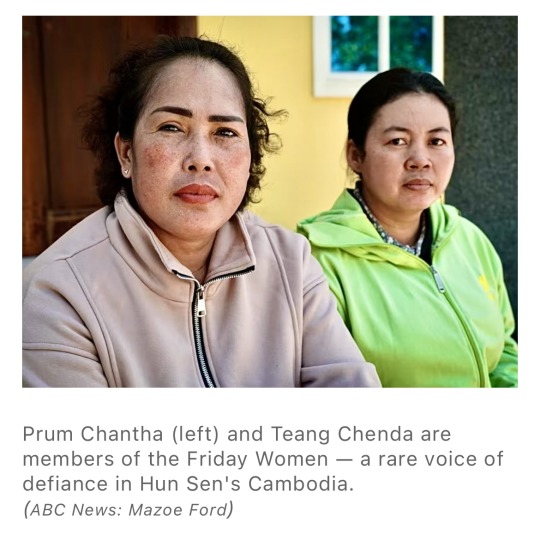
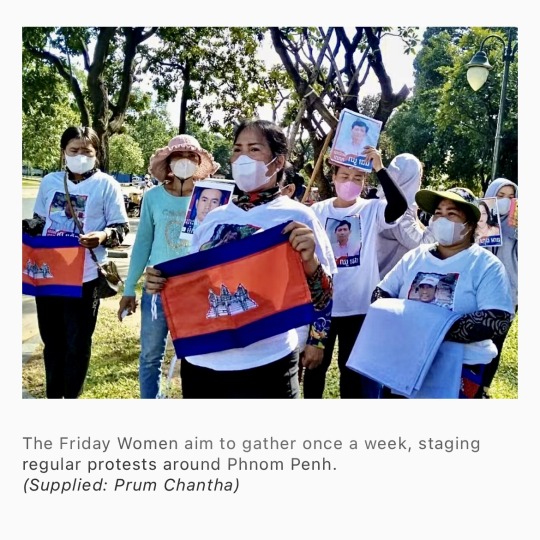
Cambodia’s only credible opposition party disqualified from running in elections.
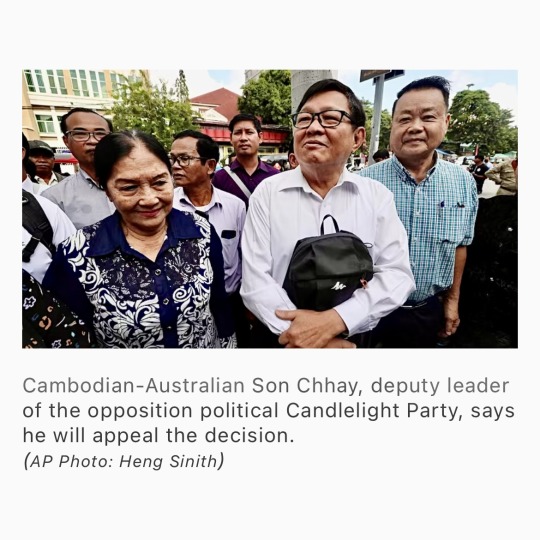
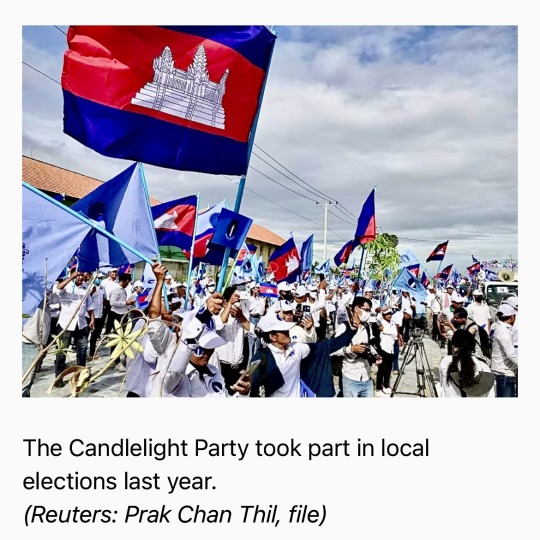
Cambodia’s strongman faces an unlosable election. But will he still run the country?
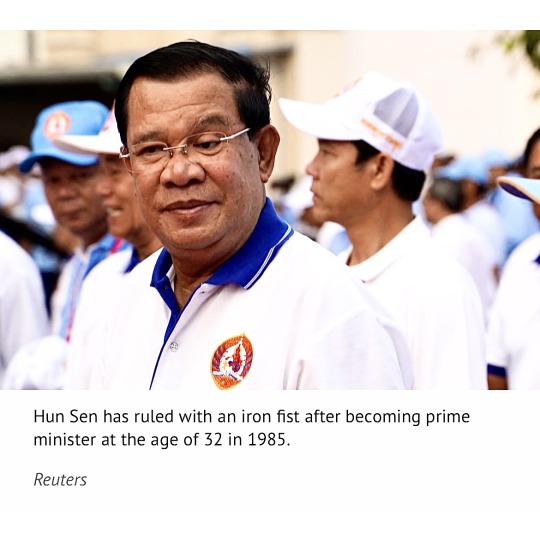
Cambodian Australians ask the government not to recognise ‘sham’ Cambodian elections.
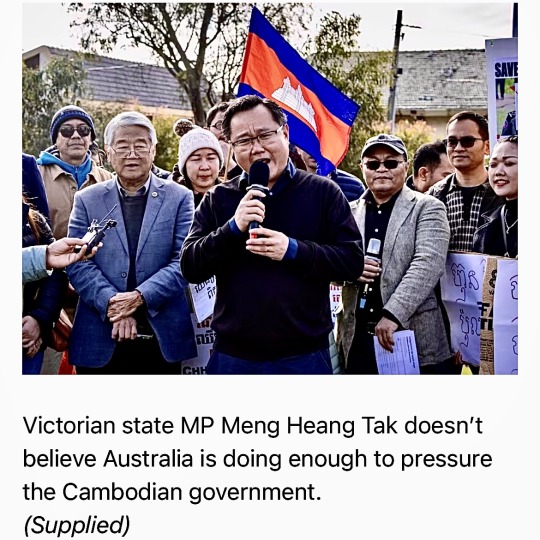
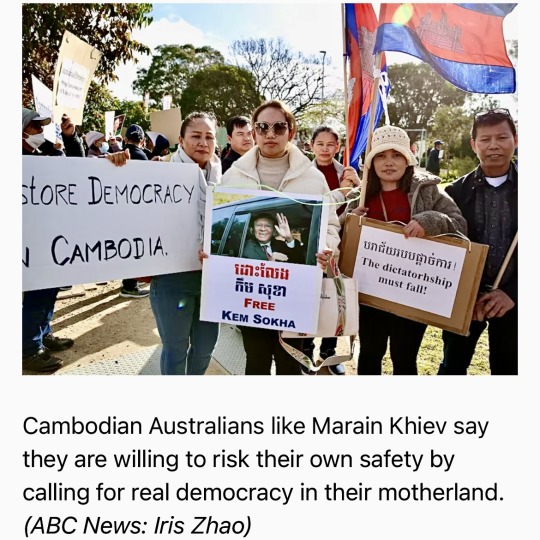
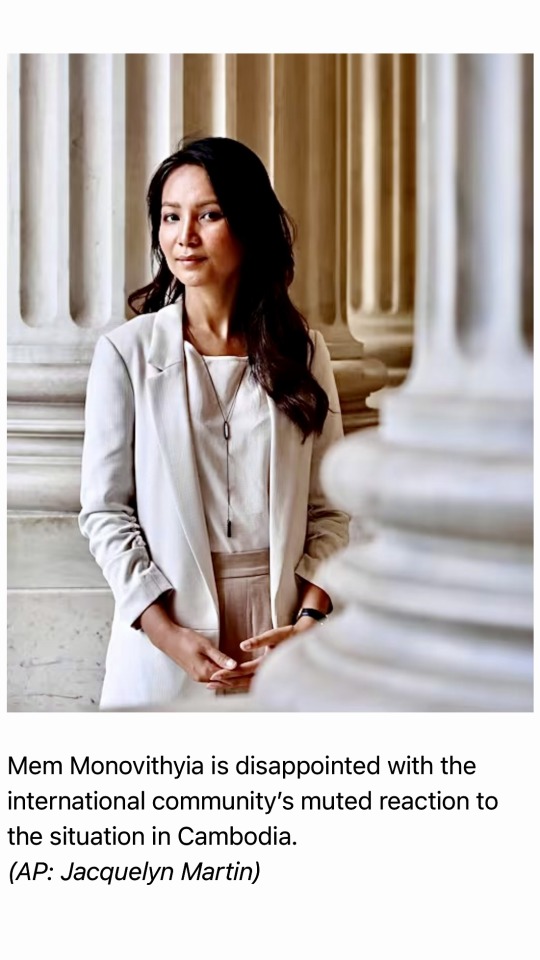
Cambodian leader's son Hun Manet set to take reins of power — but will he bring change?
ABC News
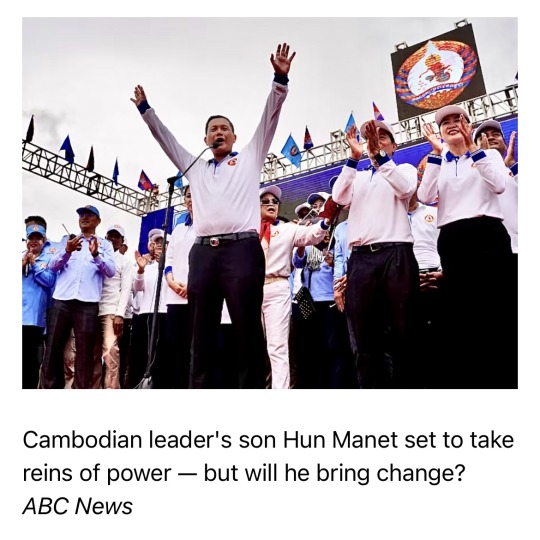
#Kampuchea#Democratic Kampuchea#Kampuchea elections#Cambodia#Cambodia’s Friday Women#Cambodia elections#Hun Sen#Hun Manet
0 notes
Text
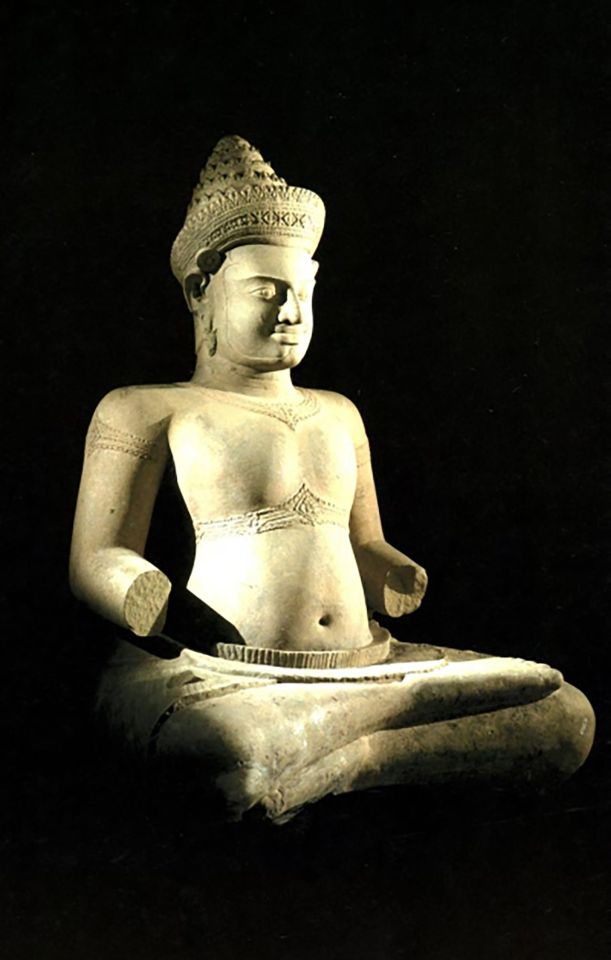

Family of Late US billionaire Agree to Return Looted Artifacts to Cambodia
The family of late American pipeline billionaire George Lindemann has agreed to return 33 looted artifacts to Cambodia, according to the US Attorney’s Office, a decision described as “momentous” by the Southeast Asian country.
The collection includes statues of deities, angels and demons from the 10th and 12th centuries from Koh Ker, the ancient capital of the Khmer kingdom, and from the famous Angkor Wat temple, the US Attorney’s Office for the Southern District of New York said on Tuesday.
In a statement it said the family’s decision to return the artifacts was voluntary. Lawyers for the Lindemann family did not immediately respond to a request for comment.
Cambodia’s archaeological sites suffered widespread looting during civil conflicts from the 1960s to 1990s and its government has spent years pursuing the return of antiquities, some of which it says are on display in American museums.
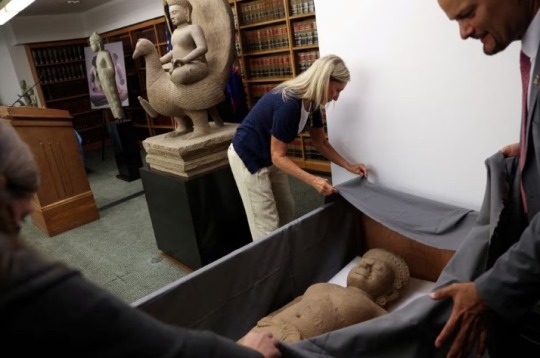


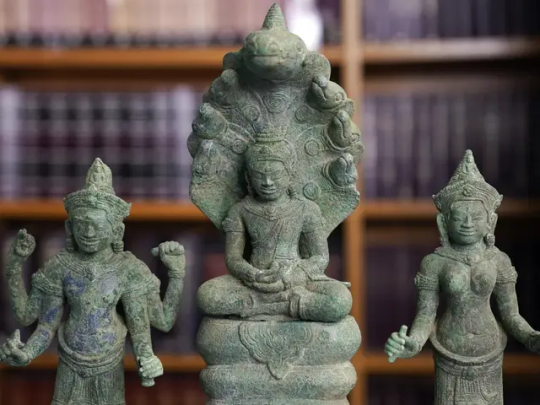
The United States repatriated 27 smuggled antiquities to Cambodia in 2021, including Hindu and Buddhist statues valued at about $3.8 million and last year returned 30 more including several that were more than 1,000 years old.
The artifacts that were held by the Lindemann family are expected to be repatriated later this year, said Bradley Gordon, a lawyer advising Cambodia on the repatriations and head of its investigation team.
He said he understood the Lindemann family had paid more than $20 million for the artifacts.
Cambodia’s Ministry of Culture and Fine Arts in a statement said the Lindemann family’s decision to return the artifacts set “an excellent and proper example for other museums and private collectors.”


In a June speech to the American Chamber of Commerce, two months before becoming Cambodia’s leader, Prime Minister Hun Manet said the antiquities were national treasures and more than just historical relics.
“They are the blood in our veins and the soul in our hearts that forge the identity of being Khmer… our heritages define who we are and who we will be,” he said.
US authorities have spent more than a decade working on locating artifacts from Cambodia and have so far repatriated 65. In 2019, art dealer Douglas Latchford was indicted for wire fraud and other crimes related to selling looted Cambodian artifacts, but the charges were dismissed after his death.


#Family of Late US billionaire Agree to Return Looted Artifacts to Cambodia#looted#stolen#theft#George Lindemann#Douglas Latchford#Angkor Wat temple#Koh Ker#ancient artifacts#archeology#archeolgst#history#history news#ancient history#ancient culture#ancient civilizations#ancient art
28 notes
·
View notes
Text
Undeterred by the pouring rain, a long convoy of motorbikes carrying cheering, flag-waving supporters of Cambodia's ruling party revved their engines in preparation for their triumphant final rally in downtown Phnom Penh.
People dutifully lined the road as far as you could see, party stickers on their cheeks, the sky-blue hats and shirts they had been given to wear getting steadily wetter.
Perched on the back of a truck, Hun Manet, the 45-year-old eldest son of Prime Minister Hun Sen, greeted the crowds proclaiming that only the Cambodian People's Party (CPP) was capable of leading the country.
Indeed, his father had made sure that the CPP was the only party which could possibly win the election.
Hun Sen, 70, has run Cambodia in his trademark pugnacious style for 38 years: first in a Vietnam-installed communist regime, then under a UN-installed multi-party system, and more recently as an increasingly intolerant autocrat.
The only party now capable of challenging his rule, the Candlelight Party, was banned from the election on a technicality in May. The remaining 17 parties allowed to contest it were too small or too little-known to pose a threat.
A few hours after the polls closed, the CPP claimed the expected landslide, with a turnout of more than 80%. There were quite high levels of spoiled ballot papers in some polling stations: that was probably the only safe way voters could show their support for the opposition.
With Hun Manet expected to succeed his father within weeks of the vote, in a long-prepared transfer of power, this felt more like a coronation than an election.
"I don't think we can even call it a sham election," says Mu Sochua, an exiled former minister and member of the CNRP, another opposition party banned by the Cambodian authorities in 2017.
"We should call it a 'selection', for Hun Sen to make sure that his party will select his son as the next prime minister of Cambodia, to continue the dynasty of the Hun family."
Yet there were signs of nervousness in the CPP before the vote. New laws were hurriedly passed criminalising any encouragement of ballot-spoiling or a boycott. Several Candlelight members were arrested.
"Why was the CPP campaigning so hard, against no one in this election with no real opposition?" asks Ou Virak, founder of the Cambodian think tank Future Forum.
"They knew they would win the election - that was an easy outcome for them. But winning legitimacy is much more difficult.
"They need to keep weakening the opposition, but at the same time, they also need to satisfy the people, so there is no repeat of previous setbacks and disruptions, like street protests."
Hun Sen is one of Asia's great survivors, a wily, street-smart politician who has time and again outmanoeuvred his opponents. He has skilfully played off China, by far the biggest foreign investor these days, against the US and Europe, which are trying to claw back lost influence in the region.
But he has come close to losing elections in the past. He is still vulnerable, to rival factions in his own ruling party, and to any sudden downturn in the Cambodian economy which could sour public opinion against him. So as he prepares for a once-in-a-generation leadership change, he is trying to cement his legacy.
A short drive north of the capital, a 33m-high concrete-and-marble monolith was built recently, which he calls the Win-Win memorial.
Its massive base is covered in carved stone reliefs, echoing Cambodia's greatest historic monument, Angkor Wat.
They depict Hun Sen's flight from Khmer Rouge-ruled Cambodia to Vietnam in 1977, his triumphant return with the invading Vietnamese army in 1979, and his eventual deal with the last of the Khmer Rouge leaders in 1998 that ended the long civil war - his win-win for the Cambodian people.
Delivering peace and prosperity has long been Hun Sen's main claim to legitimacy. Since 1998, Cambodia has had one of the world's fastest-growing economies, albeit from a very low base.
But it is a model of growth which has concentrated wealth in the hands of a few families - the number of ultra-luxury cars on the roads of such a low-income country is jarring. It has encouraged rapacious exploitation of Cambodia's natural resources and it has left many ordinary people feeling that they are not winning under Mr Sen.
Prak Sopheap lives with her family at the back of an engine repair shop, squeezed between the main road and one of the many shallow lakes in the low-lying land outside Phnom Penh. They have been there for 25 years, fishing and cultivating vegetables on the lake.
Today, though, much of the lake has been filled with rubble by a property developer and Ms Sopheap's family have been ordered to leave.
She showed me a document from the local council, confirming how long she had lived there, and another document, a summons to court on a charge of illegally occupying state land. She feels powerless and angry - and she is not alone.
Land disputes are among the most incendiary grievances in Cambodia. All property deeds were destroyed in the Khmer Rouge revolution.
Since the end of the civil war, millions of hectares have been allocated for commercial development, a lucrative arrangement which has made many politicians and businesses allied to Hun Sen very rich.
The courts very rarely rule against these powerful interests. Transparency International ranks Cambodia as 150th out of 180 countries for corruption: in the Asia-Pacific region, only Myanmar and North Korea rank lower.
"Hun Sen always talks about his 'win-win policy'", says Ms Sopheap. "But we feel it is he alone who wins. We cannot feel at peace, as we now face eviction. We, the real Cambodian people, who live on this land, are suffering in the name of development."
Those who have tried to campaign against land grabs and evictions have been harassed, beaten and jailed, as have trade unionists and supporters of opposition parties. I asked Ms Sopheap how she would vote in this election. "Who can I choose?" she asked. "Who can protect me?"
Half of those eligible to vote are under 35 years old. The CPP has tried attracting them by having Hun Manet and other younger party leaders run this year's campaign, with a slick social media strategy.
But as most Cambodians have no memory of war or the Khmer Rouge, Ly Chandravuth, a 23-year-old law graduate and environmental activist, says the old CPP campaign points are no longer persuasive.
"Hun Manet's biggest challenge will be that my generation is very different from previous ones, who were traumatised by the Khmer Rouge," he says.
"Since I was a child, I have watched the ruling party reminding us of that tragedy, telling us that as they brought peace, we should support them. But that argument is less and less effective. Every time the ruling party brings it up, the young generation mocks them, because they have been repeating it for 30 years."
Can Hun Manet modify the rough-house, sometimes thuggish leadership style of his father to a softer and more subtle kind of rule? Despite his Western education, his years heading the army and his long apprenticeship, he has never yet held a top political office.
With him, other "princeling" sons of Hun Sen's contemporaries, such as Defence Minister Tea Banh and Interior Minister Sar Keng, are also expected to replace their fathers in the cabinet - a dynastic shift which keeps the levers of power with the same families, but in less experienced hands. The next few years could be a delicate, even dangerous time for Cambodia.
13 notes
·
View notes
Text
Hun Sen was elected the new head of Cambodia's Senate on Wednesday, taking over a key ceremonial role after handing over executive power to his eldest son last year.
The former dictator remains in charge of the ruling Cambodian People's Party (CPP). With most of the CCP's rivals dismantled during Hun Sen 38-year-long rule, the party now controls 55 out of 62 seats in the upper house of Cambodia's parliament.
Hun Sen thanked the senators for their confidence after the vote, according to a report by National Television of Cambodia cited by China's Xinhua news agency.
He also pledged to "further Cambodia's international diplomacy."
"It is my first time to sit on such a high chair," he said.
In a further sign of his party's dominance, Hun Sen was also backed by the two senators appointed by Cambodia's king as well as the two appointed by the lower house of the Parliament.
Hun Sen to sign laws in king's absence
His new position allows Hun Sen to act as the head of state when King Norodom Sihamon, is overseas. The 70-year-old monarch often travels abroad for health checkups, with his trips occasionally coinciding with the CCP's efforts to pass questionable laws.
The king's absence allows the senate president to sign the bills into law.
While Senate is not Cambodia's most powerful political or legislative body, it serves "as the highest political symbol of the nation," Cambodian political analyst Ou Virak told the AFP news agency.
New cabinet stacked with Hun Sen allies
In addition to Hun Sen now leading the Senate and his son Hun Manet leading the government, otherkey posts in the new cabinet are divided between Hun Sen's relatives or children of his allies.
The CCP also dominated last year's general election, with opposition parties struggling to come up with an effective strategy following a crackdown on the Cambodia National Rescue Party (CNRP). The CNRP was forcibly dissolved in 2017 on spurious accusations of plotting a coup after positioning itself as the key CCP rival during Hun Sen's rule.
#nunyas news#if they go commie again#they better not ask for help#with anything#they should know better after#25% of their population was murdered by commies
5 notes
·
View notes
Text
7/26/23
The Nigerien presidential guards are holding President Bazoum and his family. The presidency is claiming that the guards tried to garner support from the army, which did not agree and is now threatening to attack the guards if the president isn't released. West Africa in the past few years has been under a wave of coups, and Niger itself had an attempted one just before Bazoum was sworn in.
Israel's Supreme Court said it would hear a case challenging the constitutionality of the recent judicial overhaul. I wonder if this would lead to a constitutional crisis if the court strikes it down but the Knesset just ignores that order.
Cambodian Prime Minister Hun Sen, who has been in office since 1998, said he was stepping down next month and that his son Hun Manet would take over.
Two Atlanta election workers are suing Giuliani for defamation after he made claims they helped manipulate ballots in the 2020 election, and Giuliani today admitted in court documents that he made false statements but says they're constitutionally protected. I'm not a lawyer so please keep in mind I may be wrong about this, but from my understanding he's admitting this to stop the discovery procedure, i.e. the part of the trial where you have to relinquish communications, documents, etc. In the Dominion/Fox case, Dominion's lawyers combed through everything they received from discovery and then put every embarrassing internal communications in court for the world to see. Giuliani probably doesn't want the same thing to happen to him, and so by conceding he made false statements he can move onto the next stage where his lawyers put in a motion to dismiss on the merits alone, which in this case would be probably "yes, I made false statements, but you're allowed to do that." It's not the best legal defense but he probably doesn't have much of a choice. I'm going to talk to a few lawyer friends and will update in a few days if I was incorrect about what I stated above. Giuliani is also still facing a defamation lawsuit from Dominion for a huge amount of money.
There was a massive prison riot in Ecuador. It started in the country's largest prison El Litoral, but spread to others. There was overcrowding in El Litoral, which led to tensions and violence between rival gangs housed there, so some prisoners were moved to other facilities to ease the situation. However when a riot broke out in El Litoral, members who were moved out heard about it and started rioting in their own prisons. So far 31 inmates have been found dead and over 100 guards were held hostage, although most have been released.
1) BBC, Al Jazeera 2) NYT 3) Reuters 4) Politico, Guardian 5) BBC
7 notes
·
View notes
Text
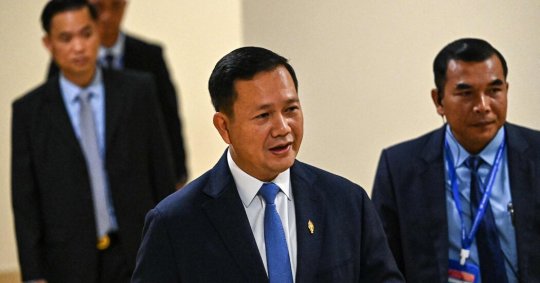
Cambodia Leader, Hun Sen, Appoints Hun Manet as New Prime Minister https://t.co/vXvNcQYnwj http://dlvr.it/Stzvm9
3 notes
·
View notes
Text
Während Kambodscha eine Bauoffensive im Wert von 36,6 Milliarden US-Dollar startet, kämpfen China und Japan um die Beute
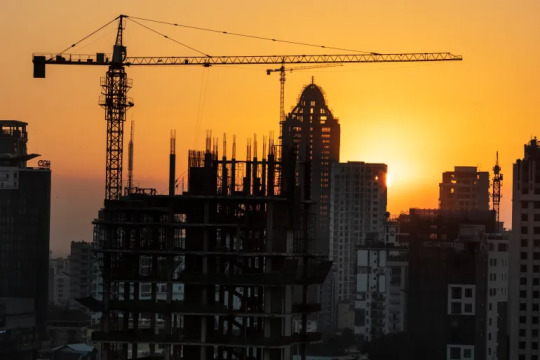
Phnom Penh, Kambodscha – Der kambodschanische Premierminister Hun Manet hat einen Masterplan mit 174 Projekten vorgestellt, der Angebote rivalisierender Mächte angezogen hat.
Kambodscha drängt auf eine Renaissance der Infrastruktur, braucht aber die Hilfe seiner Freunde im Ausland, um den geschätzten Preis von 36,6 Milliarden US-Dollar zu erwirtschaften.
Das war die endgültige Summe, die von der kambodschanischen Regierung berechnet und Anfang des Jahres in einem 174 Projekte umfassenden Masterplan veröffentlicht wurde, der das nationale Transport- und Logistiknetzwerk innerhalb eines ehrgeizigen Zeitrahmens von nur einem Jahrzehnt umbauen sollte.
Das Ziel, das Königreich mit Schnellstraßen, Hochgeschwindigkeitsbahnstrecken und anderen Bauwerken zu durchziehen, passt gut zum langjährigen Wunsch des Staates, im Jahr 2030 ein Land mit höherem mittlerem Einkommen und bis 2050 ein Land mit hohem Einkommen zu werden.
Seit dem unangefochtenen Aufstieg von Premierminister Hun Manet – dem Sohn des ehemaligen Premierministers Hun Sen, der fast 40 Jahre lang das Land regierte – im letzten Jahr hat seine neue Regierung aus aufstrebenden Technokraten die Aufbaukampagne vorangetrieben und ausländische Verbündete um engere Beziehungen gebeten erhöhte Investitionen und gleichzeitig die Gewissheit, dass die Öffentlichkeit große Dinge vor sich hat.
„Wir werden nicht davon absehen, unsere Ziele für den Bau von Straßen- und Brückeninfrastruktur festzulegen“, sagte Hun Manet bei einem Spatenstich im Februar für eine Brücke in Phnom Penh, die mit einem chinesischen Darlehen finanziert wurde.
„Straßen sind wie Blutgefäße, die die Organe versorgen, wohin sie auch führen … Bald werden wir nicht nur die Möglichkeit haben, zu besitzen, sondern den Kambodschanern auch die Möglichkeit zu geben, selbst infrastrukturelle Wunderwerke wie Brücken, Autobahnen und U-Bahnen zu bauen.“
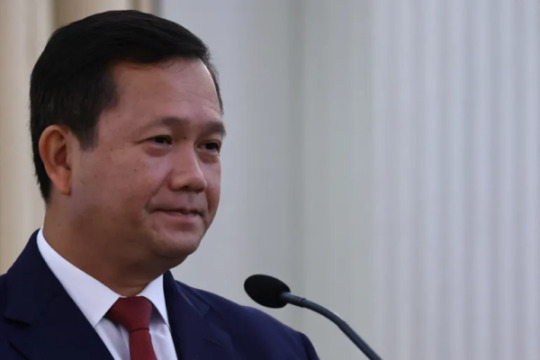
Der kambodschanische Premierminister Hun Manet hat eine große Infrastrukturoffensive gestartet
Wirtschaft|Infrastruktur
Während Kambodscha eine Bauoffensive im Wert von 36,6 Milliarden US-Dollar startet, kämpfen China und Japan um Beute
Der kambodschanische Premierminister Hun Manet hat einen Masterplan mit 174 Projekten vorgestellt, der Angebote rivalisierender Mächte angezogen hat.
Phnom Penh, Kambodscha – Kambodscha drängt auf eine Renaissance der Infrastruktur, braucht aber die Hilfe seiner Freunde im Ausland, um den geschätzten Preis von 36,6 Milliarden US-Dollar zu erwirtschaften.
Das war die endgültige Summe, die von der kambodschanischen Regierung berechnet und Anfang des Jahres in einem 174 Projekte umfassenden Masterplan veröffentlicht wurde, der das nationale Transport- und Logistiknetzwerk innerhalb eines ehrgeizigen Zeitrahmens von nur einem Jahrzehnt umbauen sollte.
Das Ziel, das Königreich mit Schnellstraßen, Hochgeschwindigkeitsbahnstrecken und anderen Bauwerken zu durchziehen, passt gut zum langjährigen Wunsch des Staates, im Jahr 2030 ein Land mit höherem mittlerem Einkommen und bis 2050 ein Land mit hohem Einkommen zu werden.
Seit dem unangefochtenen Aufstieg von Premierminister Hun Manet – dem Sohn des ehemaligen Premierministers Hun Sen, der fast 40 Jahre lang das Land regierte – im letzten Jahr hat seine neue Regierung aus aufstrebenden Technokraten die Aufbaukampagne vorangetrieben und ausländische Verbündete um engere Beziehungen gebeten erhöhte Investitionen und gleichzeitig die Gewissheit, dass die Öffentlichkeit große Dinge vor sich hat.
„Wir werden nicht davon absehen, unsere Ziele für den Bau von Straßen- und Brückeninfrastruktur festzulegen“, sagte Hun Manet bei einem Spatenstich im Februar für eine Brücke in Phnom Penh, die mit einem chinesischen Darlehen finanziert wurde.
„Straßen sind wie Blutgefäße, die die Organe versorgen, wohin sie auch führen … Bald werden wir nicht nur die Möglichkeit haben, zu besitzen, sondern den Kambodschanern auch die Möglichkeit zu geben, selbst infrastrukturelle Wunderwerke wie Brücken, Autobahnen und U-Bahnen zu bauen.“
Laut dem Logistikleistungsindex der Weltbank hat Kambodscha mehr als zwei Jahrzehnte schnelles Wirtschaftswachstum mit einer der schlechtesten Infrastrukturen in Südostasien erlebt.
Da die Bank für die kommenden Jahre ein beschleunigtes Wachstum des Bruttoinlandsprodukts (BIP) prognostiziert, könnte das ohnehin schon überlastete Transportsystem Kambodschas bis zum Zerreißen belastet werden.
Während der neue Premierminister versucht, seinen eigenen Status nach der langen Herrschaft seines Vaters zu festigen, werden Fortschritte bei der harten Infrastruktur eine Bewährungsprobe für seine Regierungsführung sowie den traditionellen kambodschanischen Balanceakt der internationalen Beziehungen darstellen.
Die Einführung des Masterplans mit einer To-do-Liste großer und kleiner Projekte könnte eine Gelegenheit darstellen, von geopolitischen Rivalitäten zu profitieren, während ausländische Partner um Einfluss ringen – insbesondere, da der Wettbewerb zwischen zwei seiner größten Wohltäter, China und Japan, zunimmt.
„Ich denke, die kambodschanische Regierung ist der Meinung, dass es höchste Zeit ist, das zu maximieren, was sie von den Gebern bekommen kann“, sagte Chhengpor Aun, wissenschaftlicher Mitarbeiter beim Future Forum, einem kambodschanischen Think Tank für öffentliche Politik, gegenüber Al Jazeera.
„Es ist logisch, dass, wenn ein von der kambodschanischen Regierung initiiertes Infrastrukturprojekt von einem Partner nicht akzeptiert wird, sie sich trotzdem an den anderen Partner wenden könnten, um es zu finanzieren. Die Art und Weise, wie sie die Großmächte gegen sich selbst ausspielen, um daraus Vorteile zu ziehen, ist strategisch und flexibel.“
Die kambodschanische Regierung und private Unternehmen finanzieren zwar Infrastrukturprojekte im Königreich, aber ein Großteil dieser Investitionen entfällt auf China und Japan zusammen.
Beide sind auch die einzigen Länder, die Kambodschas höchste diplomatische Auszeichnung als „umfassende strategische Partnerschaft“ tragen, ein Status, den Japan erst letztes Jahr erlangte.
Bisher hat Chinas Flaggschiff-Initiative „Belt and Road Initiative“ (BRI) die Infrastrukturgebühren mit Großprojekten wie der ersten Schnellstraße des Königreichs angeführt, die von der Landeshauptstadt Phnom Penh zur Küstenstadt Sihanoukville führt.
Unterdessen verfolgt Japan seine eigene feste Agenda und konzentriert sich auf eine Reihe von Projekten wie neue Abwasseraufbereitungsanlagen und den Ausbau bestehender Straßen.
Am bemerkenswertesten ist vielleicht eine von Japan angeführte Erweiterung, die die Kapazität des internationalen Tiefseehafens von Sihanoukville, der einzigen Anlage dieser Art in Kambodscha, mehr als verdreifachen könnte.
Die geschäftige Anlage wickelt etwa 60 Prozent des Import- und Exportverkehrs des Landes ab und ist nach mehr als einem Jahrzehnt stetigen Wachstums zunehmend überlastet.
Unter der Aufsicht der Japan International Cooperation Agency (JICA) haben die Hafenbesatzungen Ende letzten Jahres den Grundstein für die Erweiterung gelegt.
Das geplante dreiteilige, jahrzehntelange Projekt ist im neuen Masterplan enthalten und hat geschätzte Gesamtkosten von rund 750 Millionen US-Dollar.
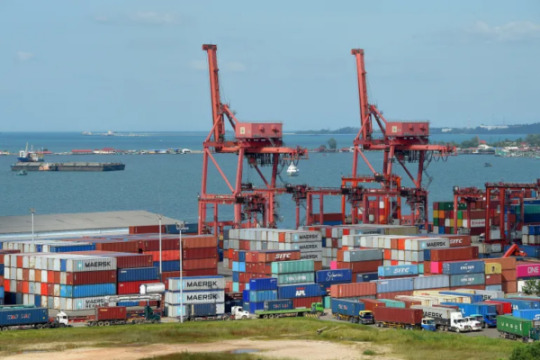
Der Hafen von Sihanoukville wickelt etwa 60 Prozent des kambodschanischen Import- und Exportverkehrs ab
„Im Vergleich zu chinesischen Investitionen ist der Umfang der japanischen Investitionen sehr begrenzt“, sagte Ryuichi Shibasaki, außerordentlicher Professor und Forscher für globale Logistik an der Universität Tokio, der die Schifffahrtsindustrie Kambodschas studiert hat, gegenüber Al Jazeera.
„Wir müssen Nischenmärkte finden, da es so viele Investitionen aus China gibt, um die Lücken zu schließen oder die Investitionen auf einen breiteren Blickwinkel auszurichten.“
In den letzten Jahren hat die BRI ihren Fokus verschärft.
Vorwürfe, China würde ärmere Länder in „Schuldenfallen“ verstricken, haben dazu geführt, dass Peking sich von der Vergabe großer Kredite an Länder zur Finanzierung von Megaprojekten – typischerweise solche mit einem Wert von mehr als einer Milliarde US-Dollar – abwendet und sich stattdessen eher investitionsorientierten Projekten zuwendet erwartete Renditen.
Diese werden in der Regel durch „Build-Operate-Transfer“-Vereinbarungen finanziert, bei denen das Unternehmen, das die Arbeiten überwacht, die Kosten für die Entwicklung übernimmt und im Gegenzug dafür die Einnahmen erhält, die das fertige Projekt über einen festgelegten Zeitraum generiert.
Am Ende der Vereinbarung, die sich über Jahrzehnte erstrecken kann, geht das Eigentum an die Regierung des Gastlandes über.
Wesentliche Teile der Gesamtvision Kambodschas werden von dieser Art der Finanzierung abhängen.
„Ich versuche, Kambodschas bester Freund zu sein“
Der Masterplan des Königreichs für die Infrastruktur umfasst Vorschläge für neun Megaprojekte mit einem geschätzten Gesamtwert von über 19,1 Milliarden Dollar.
Während die meisten davon noch auf Machbarkeit untersucht werden, wurden fast alle irgendwann einmal von JICA oder der China Road and Bridge Corporation (CRBC), einer Tochtergesellschaft des staatlichen Riesen China Communications Construction Company, in Angriff genommen.
CRBC leitete zuvor den Bau der ersten Schnellstraße Kambodschas, die Ende 2022 in Betrieb genommen wurde und allgemein als Erfolg gefeiert wurde.
Das Unternehmen hat im vergangenen Jahr den Grundstein für eine zweite Schnellstraße im Wert von 1,35 Milliarden US-Dollar zwischen Phnom Penh und Bavet, einer Stadt an der vietnamesischen Grenze, gelegt, die zu den neun geplanten Megaprojekten gehört.
Hinzu kommen Arbeiten wie ein weiteres vom CRBC untersuchtes Schnellstraßensystem, das Phnom Penh mit dem wichtigen Tourismuszentrum Siem Reap und der Stadt Poipet an der thailändischen Grenze verbinden soll.
Der Bau dieses Straßensystems ist in zwei Teile aufgeteilt und wird auf Gesamtkosten von 4 Milliarden US-Dollar geschätzt. Außerdem wird eine bestehende Eisenbahnlinie nach Poipet für 1,93 Milliarden US-Dollar für Hochgeschwindigkeitszüge ausgebaut, außerdem wird eine weitere nach Sihanoukville für 1,33 Milliarden US-Dollar ausgebaut.
Der Plan sieht später ein Stadtbahn- und U-Bahn-System für die Hauptstadt Phnom Penh und einen Teil von Siem Reap vor, alles zusammen für geschätzte 3,5 Milliarden US-Dollar.
Auch Schifffahrtsprojekte spielen im Plan eine große Rolle.
Der größte davon ist ein 180 Kilometer langer und 100 Meter breiter Schifffahrtskanal, der das Mekong-Flusssystem bei Phnom Penh direkt mit dem Golf von Thailand verbindet. Der 1,7 Milliarden US-Dollar teure Kanal würde die derzeitige, weniger bequeme Flussschifffahrtsroute umgehen, die entlang des Mekong durch Vietnam verläuft.
Der Kanal wird derzeit von CRBC auf seine wirtschaftliche Machbarkeit untersucht.
Obwohl aus diesem Prozess bisher nur wenige Einzelheiten bekannt geworden sind und kein Unternehmen einen offiziellen Vertrag zum tatsächlichen Bau des Projekts unterzeichnet hat, hat die kambodschanische Regierung angekündigt, dass der erste Spatenstich bis Ende dieses Jahres erfolgen wird.
Das Ausmaß des Vorschlags und die Dringlichkeit der Regierung, ihn in die Tat umzusetzen, haben in der Logistikbranche positive Aufmerksamkeit erregt und gleichzeitig ökologische Bedenken hinsichtlich seiner möglichen Auswirkungen auf das grenzüberschreitende Flusssystem geweckt.
Die schlechte Kommunikation mit der Öffentlichkeit über die Einzelheiten hat dazu geführt, dass die Bewohner entlang der vorgeschlagenen Route verwirrt und besorgt sind, ob sie in ihren Häusern bleiben können.
Die auf den Mekong spezialisierte Denkfabrik Stimson Center geht davon aus, dass der Kanal selbst negative Auswirkungen auf ein wichtiges Überschwemmungsgebiet haben wird, das sich über wichtige Agrarregionen Kambodschas und Vietnams erstreckt.
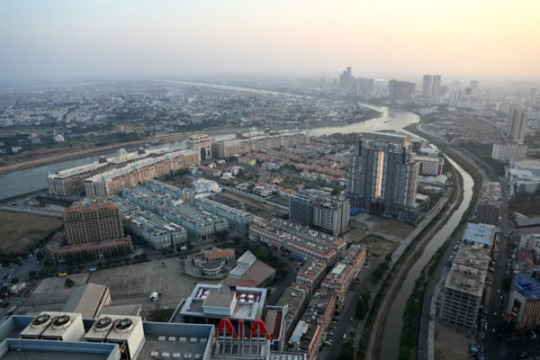
Die kambodschanische Regierung hat den Bau eines Stadtbahn- und U-Bahn-Systems in der Hauptstadt Phnom Penh für 3,5 Milliarden US-Dollar vorgeschlagen
Die kambodschanische Regierung hat den Bau eines Stadtbahn- und U-Bahn-Systems in der Hauptstadt Phnom Penh für 3,5 Milliarden US-Dollar vorgeschlagen
Hong Zhang, ein Postdoktorand für öffentliche Politik in China am Ash Center der Harvard Kennedy School, sagte, die Dynamik des Projekts könne es ungeachtet der Bedenken durchsetzen.
„Wenn das Projekt eine sehr starke politische Unterstützung hat, glaube ich nicht, dass ökologische und soziale Auswirkungen ihm im Weg stehen oder es verhindern würden“, sagte Zhang gegenüber Al Jazeera.
Zhang fügte hinzu, dass die relative politische und makroökonomische Stabilität Kambodschas – sowie die pro-chinesische Haltung seiner Regierung – ihm wahrscheinlich Optionen eröffnet habe, die andere Länder nicht unbedingt erhalten würden.
„Kambodscha ist im Vergleich zu vielen anderen Ländern wie Pakistan, Sri Lanka oder sogar Laos weiterhin ein relativ problemloser Markt für chinesisches Engagement“, sagte sie.
„Selbst wenn wirtschaftlich nicht machbar sein wird, aber im Hinblick auf seinen öffentlichen Nutzen und viele externe Effekte einen guten Wert zu haben scheint, wird es für sie durchaus legitim sein, bei dieser Art von Projekt zum alten Modell zurückzukehren.“ Sie nehmen in China Kredite zu Vorzugskonditionen auf, bauen es und dann zahlt die Regierung den Kredit zurück.“
Auch wenn nicht alle Projekte des Masterplans zustande kommen, gibt es für die nationale Logistik- und Transportbranche durchaus gute Gründe.
Matthew Owen, Projektentwicklungsleiter für das Phnom Penh-Büro der in Singapur ansässigen Schifffahrtsagentur Ben Line Integrated Logistics, sagte, der Plan habe großes Potenzial, sein Erfolg werde jedoch von der Fähigkeit Kambodschas abhängen, gleichzeitig den Wert seiner Exporte zu steigern.
„Ich glaube nicht, dass es heißt: ‚Baut es und sie werden kommen‘, aber ich denke, dass ihrer Zeit voraus ist“, sagte Owen gegenüber Al Jazeera. „Wenn alles vorhanden ist, können sie mehr Menschen für Investitionen und Geschäfte gewinnen.“
Laut Owen geht das Streben nach groß angelegten öffentlichen Arbeiten mit dem Streben nach mehr Engagement des Privatsektors einher.
Owen sagte, die neue kambodschanische Regierung habe internationale Investoren aus ganz Asien dazu gedrängt, Projekte in Angriff zu nehmen, die vor der politischen Machtübergabe im letzten Jahr initiiert wurden.
„Jeder hat Einfluss, jeder hat etwas zu gewinnen, und das gleicht den Einfluss Chinas aus“, sagte er.
„Es ist nicht einmal ein Wettbewerb, es ist wie eine Gruppe von Ländern, die versuchen, Kambodschas bester Freund zu sein. Kambodscha ist offen für jedes Land, das bereit ist, Kambodscha zu verbessern – wenn sie ihren eigenen Wettbewerb darum haben wollen, wer die größte Brücke bauen kann, dann tun Sie es.“ /Al Jazeera
Read the full article
0 notes
Text
Stay on guard: PM calls on police to strengthen capacity to ensure security
Amid growing threats worldwide, Prime Minister Hun Manet urged all police personnel to strengthen their capacity to ensure security which is crucial for the Kingdom’s continued development.
He said this in a statement yesterday to mark the 79th Anniversary of the National Police of Cambodia which falls on Thursday.
“I would like to express my appreciation for all the accomplishments made by the…

View On WordPress
0 notes
Text
Mass fish die-off in Vietnam as heat wave roasts Southeast Asia
Hundreds of thousands of fish have died in a reservoir in southern Vietnam's Dong Nai province, with locals and media reports suggesting a brutal heat wave and the lake's management are to blame.
Like much of Southeast Asia—where schools have recently been forced to close early and electricity usage has surged—southern and central Vietnam have been scorched by devastating heat.
"All the fish in the Song May reservoir died for lack of water," a local resident in Trang Bom district, who identified himself only as Nghia, told AFP.
"Our life has been turned upside down over the past 10 days because of the smell."
Pictures show residents wading and boating through the 300-hectare Song May reservoir, with the water barely visible under a blanket of dead marine life.
[...]
The soaring temperatures are also impacting neighboring Cambodia, where the high could reach 43 on the mercury.
On Wednesday Cambodian Prime Minister Hun Manet ordered schools to consider closing to protect teachers and students from the heat, and put officials on stand-by in case of water shortages.
It follows the education minister on Tuesday ordering establishments to shorten morning classes and delay afternoon ones in an attempt to avoid the worst of the midday heat.
Hang Chuon Naron said the measures were "to prevent risks and to avoid illnesses that would harm the health" of students and teachers.
Meanwhile, in Thailand, electricity usage surged to new records on Tuesday as temperatures in northeastern province Udon Thani broke 44C.
0 notes
Text
Cambodia Aims for UNESCO Nod for Sankranta Festival
Cambodia seeks UNESCO status for Sankranta, highlighting the commitment to preserve Khmer New Year and other cultural traditions by 2026.
via Khmer Times, 01 April 2024: Prime Minister Hun Manet has directed the Ministry of Culture and Fine Arts to seek UNESCO Intangible Cultural Heritage status for Sankranta in Cambodia by 2026, emphasizing the importance of preserving Cambodian traditions such as the Khmer New Year. This initiative aims to secure Cambodia’s cultural legacy on the international stage, amidst concerns of cultural…
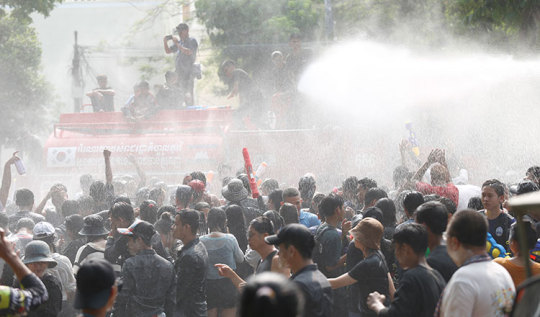
View On WordPress
0 notes
Text
| 20240227 | Selasa | Perdana Menteri YAB Dato' Seri Anwar Ibrahim sewaktu pertemuan dengan Perdana Menteri Kemboja, Hun Manet yg sedang dlm lawatan rasmi sehari ke Malaysia, kami sempat menyaksikan Memorandum Persefahaman (MoU) mengukuhkan kerjasama dalam inovasi kewangan dan pembayaran.
Ia dimeterai dan ditangani Gabenor BNM Abd Rasheed Ghaffour dan Gabenor NBC Chea Serey.
Dlm sidang media bersama, PM tekankan kepentingan MoU antara kedua-dua bank pusat itu adalah suatu yg bermakna kerana ia merupakan salah satu usaha bagi menangani isu atau masalah dengan mata wang.
POSITIF • PEDULI • POPULAR
POSITIVE • CARE • POPULAR
KLIK LIKE, COMMENT DAN SHARE
#AnwarIbrahim #PMX #JPM #KDN #MKN #MCMC #SPRM #PDRM #JKOM #JAKIM #MalaysiaMadani #BernamaTV #Astroawani #HalalJAKIM #BeritaRTM #SebarkanKasihSayang #YDPAgongXVII #AgongKita #MNACNetworks #PrayForMalaysia #DaulatTuanku #PrayForPalestine
0 notes
Link
Thủ tướng Hun Manet phát biểu bế mạc cuộc họp thường niên của Bộ Thông tin Campuchia hôm 23.1ẢNH CHỤP MÀN HÌNH KHMER TIMESHãng thông tấn AKP ngày 24.1 dẫn lời Thủ tướng Campuchia Hun Manet chỉ đạo Tổng cục Cảnh sát quốc gia tăng cường hơn nữa hành động đối phó vi phạm nồng độ cồn, nhằm ngăn ngừa tai nạn giao thông.Ông Hun Manet đưa ra chỉ đạo khi phát biểu bế mạc cuộc họp thường niên của Bộ Thông tin hôm 23.1, trong bối cảnh tai nạn giao thông là nguyên nhân tử vong và thương tích hàng đầu trên cả nước.Nhà lãnh đạo bày tỏ nỗi buồn về những trường hợp tử vong do lái xe vi phạm nồng độ cồn tại thủ đô Phnom Penh trong thời gian gần đây và nói thêm rằng tai nạn giao thông gây tử vong nhiều hơn bom mìn còn sót lại.Do đó, ông cho rằng nên xem xét lại các biện pháp kiểm soát nồng độ cồn nhằm tránh tình trạng trên. Song song đó, ông lưu ý rằng mọi đài truyền hình cần ngăn cảnh mọi người lên sân khấu và khui bia, đồng thời kêu gọi các nhà báo phối hợp ngăn chặn việc quảng cáo rượu bia mà cần nâng cao nhận thức của mọi người về các tác hại liên quan.Đầu tháng này, Bộ Thông tin Campuchia đã lưu ý lại về lệnh cấm quảng cáo không phù hợp đối với rượu bia trên truyền thông, nhất là trên truyền hình. Phó thủ tướng kiêm Bộ trưởng Nội vụ Sar Sokha bày tỏ lo ngại về tai nạn giao thông gia tăng do rượu bia, khi cho biết có đến 1.952 người chết vì tai nạn giao thông đường bộ trong năm ngoái. Theo Luật Giao thông đường bộ Campuchia, hành vi lái xe khi có nồng độ cồn trong máu từ 0,4-0,8% bị phạt tù lên đến 6 tháng kèm mức phạt lên đến 4 triệu riel (24 triệu đồng). Hành vi lái xe với nồng độ cồn trong máu trên 0,8% còn chịu hình phạt cao hơn. Trong một diễn biến khác, tòa án tại Phnom Penh vừa ra lệnh bắt giữ một tài xế say xỉn lái xe gây tai nạn khiến 4 người thiệt mạng tại hôm 20.1. Theo tờ Khmer Times dẫn lời một phát ngôn viên tòa án, tai nạn xảy ra khi chiếc xe hơi hiệu Ford mang biển số Phnom Penh va chạm làm 4 người thiệt mạng và 4 người bị thương. Tài xế Neang Sam Oun (56 tuổi) là cán bộ hải quan thuộc Bộ Kinh tế và Tài chính Campuchia, bị cáo buộc lái xe gây tai nạn chết người với nồng độ cồn 0,54 mg/lít khí thở.
0 notes
Link
0 notes
Text
Cambodia's Prime Minister Hun Sen, one of the world's longest-serving leaders, has announced he will resign and hand over to his son in early August.
The anticipated announcement came three days after his party again won all seats at an uncompetitive election.
Hun Sen, 70, has become increasingly authoritarian after nearly four decades of rule in Cambodia.
He first flagged a transition in 2021, but up to now no one knew exactly when it would take place.
His eldest son, Hun Manet, until recently the commander of the Royal Cambodian Army, has long been groomed for the role.
In his announcement, Hun Sen said his son would be appointed prime minister on 10 August.
"I would like to ask for understanding from the people as I announce that I will not continue as prime minister," he said in a special broadcast on state television.
He said he would be stepping down as staying in office could cause instability. However he will retain leadership of the ruling Cambodian People's Party - a position political analysts say still gives him ultimate control.
Cambodia's election 'was more a coronation'
Asia's longest-serving PM rigs the vote - again
Earlier on Wednesday, state media showed Hun Sen visiting the Cambodian monarch's palace to announce the news of the dynastic succession.
Hun Manet, 45, took a leading role in campaigning for the 23 July election this year - and was often spotted leading rallies next to his father, who has ruled the Southeast Asian nation of 16 million people since 1985.
Sunday's election was widely seen as a done deal, because the only credible opposition party had been disqualified from the vote.
There were 17 other parties on the ballot but they were all too small, new or aligned with the CPP to be considered a real alternative for voters.
The US and the EU both released statements condemning the vote as neither free nor fair.
Hun Sen's elimination of political opponents is part of his wider crackdown on civil space in Cambodia in recent years.
Having consistently crushed his opponents, in 2017 he used the courts to dissolve another popular opposition party, the CNRP, and jail or exile its leaders.
He has also increasingly stifled dissent and free speech - shutting down most independent media in the country. Rights groups, trade unions and NGOs also report facing threats of closure.
Analysts had speculated that his clampdown this year was driven by the need for a smooth transition. It will be Cambodia's first transfer of power in four decades.
Compared to his father, whose iron-fisted rule was forged during and after the days of the Khmer Rouge regime, there is some speculation that Hun Manet, who attended US military academy West Point and the University of Bristol, could lead a less repressive regime and be more receptive to Western calls on human rights.
However analysts say he has shown no evidence that he may be more open. Hun Sen has also made it clear that he will continue to wield enormous influence over the running of the country.
4 notes
·
View notes
Link
0 notes
